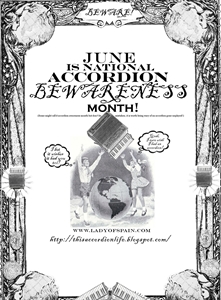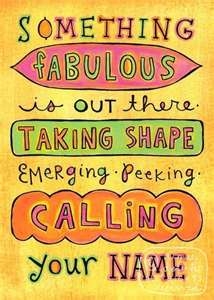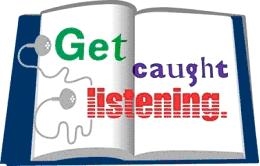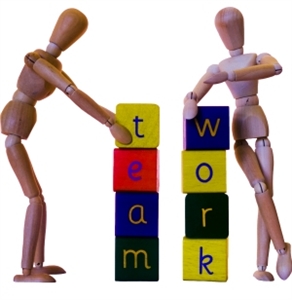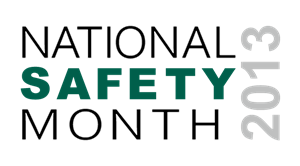Effective Communications Month on June, 2025: How to improve my poor communication skills?
June, 2025 is Effective Communications Month 2025.
As an Amazon Associate I earn from qualifying purchases.

Stay Focused: Sometimes it’s tempting to bring up past seemingly related conflicts when dealing with current ones. Unfortunately, this often clouds the issue and makes finding mutual understanding and a solution to the current issue less likely, and makes the whole discussion more taxing and even confusing. Try not to bring up past hurts or other topics. Stay focused on the present, your feelings, understanding one another and finding a solution.
Listen Carefully: People often think they’re listening, but are really thinking about what they’re going to say next when the other person stops talking. Truly effective communication goes both ways. While it might be difficult, try really listening to what your partner is saying. Don’t interrupt. Don’t get defensive. Just hear them and reflect back what they’re saying so they know you’ve heard. Then you’ll understand them better and they’ll be more willing to listen to you.
Try To See Their Point of View: In a conflict, most of us primarily want to feel heard and understood. We talk a lot about our point of view to get the other person to see things our way. Ironically, if we all do this all the time, there’s little focus on the other person’s point of view, and nobody feels understood. Try to really see the other side, and then you can better explain yours. (If you don't 'get it', ask more questions until you do.) Others will more likely be willing to listen if they feel heard.
Respond to Criticism with Empathy: When someone comes at you with criticism, it’s easy to feel that they’re wrong, and get defensive. While criticism is hard to hear, and often exaggerated or colored by the other person’s emotions, it’s important to listen for the other person’s pain and respond with empathy for their feelings. Also, look for what’s true in what they’re saying; that can be valuable information for you.
Own What’s Yours: Realize that personal responsibility is a strength, not a weakness. Effective communication involves admitting when you’re wrong. If you both share some responsibility in a conflict (which is usually the case), look for and admit to what’s yours. It diffuses the situation, sets a good example, and shows maturity. It also often inspires the other person to respond in kind, leading you both closer to mutual understanding and a solution.
Use “I” Messages: Rather than saying things like, “You really messed up here,” begin statements with “I”, and make them about yourself and your feelings, like, “I feel frustrated when this happens.” It’s less accusatory, sparks less defensiveness, and helps the other person understand your point of view rather than feeling attacked.
Look for Compromise Instead of trying to ‘win’ the argument, look for solutions that meet everybody’s needs. Either through compromise, or a new solution that gives you both what you want most, this focus is much more effective than one person getting what they want at the other’s expense. Healthy communication involves finding a resolution that both sides can be happy with.
Take a Time-Out: Sometimes tempers get heated and it’s just too difficult to continue a discussion without it becoming an argument or a fight. If you feel yourself or your partner starting to get too angry to be constructive, or showing some destructive communication patterns, it’s okay to take a break from the discussion until you both cool off. Sometimes good communication means knowing when to take a break.
Don’t Give Up: While taking a break from the discussion is sometimes a good idea, always come back to it. If you both approach the situation with a constructive attitude, mutual respect, and a willingness to see the other’s point of view or at least find a solution, you can make progress toward the goal of a resolution to the conflict. Unless it’s time to give up on the relationship, don’t give up on communication.
Ask For Help If You Need It: If one or both of you has trouble staying respectful during conflict, or if you’ve tried resolving conflict with your partner on your own and the situation just doesn’t seem to be improving, you might benefit from a few sessions with a therapist. Couples counseling or family therapy can provide help with altercations and teach skills to resolve future conflict. If your partner doesn’t want to go, you can still often benefit from going alone.
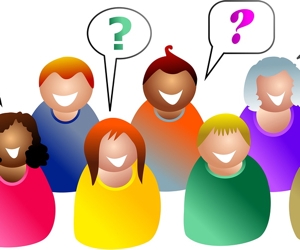
15 month old and not talking?
By 15 months, your child should be able to say between 5-15 words, including "mama" and "dada" and maybe "ah oh". The single best thing you can do to encourage communication and language is to talk, talk, talk! Children learn by imitation, so the more you talk, the more talking you can expect from your child. Talk about anything and everything... talk while changing his diaper, talk about things you see when you take a walk, talk about what you are doing. This is called self-talk, or descriptive talk- you basically give a play-by-play of everything you do. This will not only help your child to build his vocabulary, but will demonstrate how to put words together in sentences and show him the flow of language.
Another great thing to do is to encourage his own communications. If you see that he is pointing to something (say, his cup), then rather than just get it for him, you say something in return like: "Oh, do you want your CUP?" Repeat the word cup several times as you hand it to him. This is giving instruction in the word he will need to use later. An easy way to help him to get some expressive communication from him is to make picture cards of all the things he loves. I made mine with the digital camera and magnet paper. Just take pictures of common things he likes to eat or play with. Print them on magnet paper or regular paper and mount them on magnets on your refrigerator. When he wants something, take him to the pictures so he can show you what he wants (you can do this when he points to something as well). Baby sign language is also a great technique, and is quite effective at encouraging communication.
Finally, read to your baby. People often forget this simple step, but again, it encourages the development of the flow of language and demonstrates the invisible rules of English. Read baby books, picture books, or magazines... the point is the more you talk out loud, the more language your baby has to model after! : )
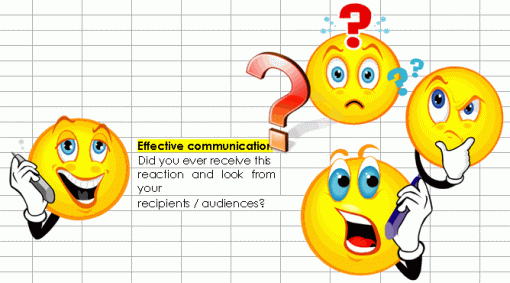
18 Month Old in Speech Therapy?
Does your son have any other delay? 18 months is quite young for speech therapy. I work with children and adults with autism, a population where speech and communication problems is a diagnostic criteria, and even then we rarely recommend speech as a specific intervention before 2-3yrs old. Kids learn to speak at different ages, and if all oth-er development is on par, personally I feel 18months is a little premature for speech therapy. However, I do think it is admirable of your sons pediatrician to be attentive enough to suggest an intervention, many doctors push aside parents concerns about speech.
Some ways to evaluate the therapy.
- ask them to film a few sessions for you, or even offer to bring in and set up your own camera on tripod if they are not set up for it.
- find out what materials they are using, are they using visual supports in the form of pictures, icons, actual items, or not at all. Are they using typical games and toys he is exposed to at home, or special speech therapy games
- what are their goals for him, have they presented you with a intervention plan or program outline. you can and should expect a detailed plan with measurable goals, and details on how they will be taught and what the mastery criteria are.
- for speech to be effective they need to involve you and the home environment, you are right to be asking. There is a lot a parent can do at home without having to sit down for a "session" and chances are, you are probably doing it without realizing it, but getting that confirmation from the "professionals" is rewarding and encouraging. keep asking for suggestions or if that's not going well, tell them what you do do/say etc with your son, and ask for their opinion.
Good Luck!









